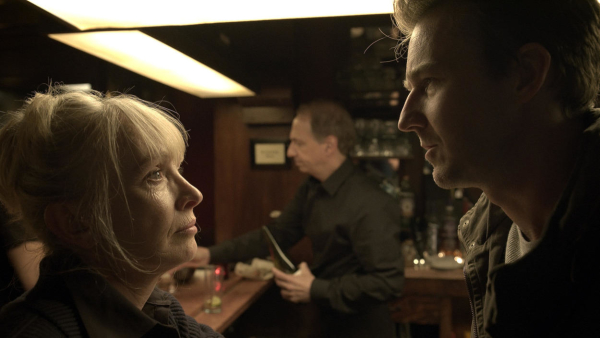Matt Trueman: Why Birdman is wrong to blast critics
Alejandro González Iñárittu’s new film is scathing about critics, but it gets it all wrong. The best criticism takes courage, says Matt Trueman

© Fox Searchlight Pictures
There’s a moment in Birdman, the best film about theatre since – ooh – at least Synecdoche, New York, when an actor confronts a critic. In Alejandro González Iñárittu‘s film, Riggan Thomson, a faded Hollywood star, still best known for a 20 year-old superhero franchise, is making his Broadway debut in a self-penned, self-directed show.
The night before opening night, after an ignominious final preview that involves a trot through Times Square in his tighty whities, Riggan saunters across a bar to Tabitha Dickinson, the New York Times’ theatre critic, who has vowed to "kill" his show. Half snarling, half seductive, he asks, "What has to happen in a person’s life that they become a critic, anyway?"
Birdman takes a dim, dim view of criticism. It doesn’t give Tabitha Dickinson a chance. She’s a hateful figure: superior, humourless and inhumane. Lindsay Duncan plays her like a human chilblain; agonisingly cold. She resolves to close Riggan’s show without even seeing it, simply because she hates everything that he – Hollywood hero he – represents.
Gradually Riggan gets going. He snatches the review she’s writing and picks it apart in front of her. "Lacklustre," he sneers, "That’s just a label… These are all labels. You just label everything. You’re lazy. You’re a lazy fucker." He builds to a bodyblow: "None of this costs you anything. Nothing. Nothing. Nothing." There’s a split second pause. "Well, I’m a fucking actor and this play cost me everything."
Well, Riggan Thomson, I’m a fucking critic and I strongly disagree. Good criticism always costs the critic something – or at least, it should. It involves risk: not as much as making theatre, sure, but risk nonetheless. And that, new readers – hello, by the way, nice to meet you all – is what you can and should demand of me: that what I write on these html-encoded pages costs me something. Say no to labels. Call me on it.
Criticism isn’t just description. It’s not a consumer service that tells you what to expect of a show and whether or not its worth your time and money. The first of those is the job of marketing departments, the second is merely a by-product. Good criticism is about honesty and it’s about advocacy – and, that’s why it costs something.
Honesty means daring to enter into the unknown, to discover as you go. The former Times critic Irving Wardle once described a critic as someone "conducting [their] education in public". I think that’s right. Theatre’s how I learn about the world and I firmly believe criticism should reflect that, grappling with the ideas behind a show, not just the manner or effectiveness of their presentation. It involves uncertainty and, with it, risk. Underneath it all, writing about theatre is just another way of writing about life and all its messy complexities.
Advocacy, on the other hand, entails standing for something. It makes demands of theatre, willing it to be better, and it backs the theatre it believes in, regardless of whether anyone else agrees or not. With so many openings on offer these days, what a critic chooses to see or cover is a critical act in itself; one that says, ‘This could be important. This has value.’ A twee line went round Twitter over Christmas: "Promote what you love instead of bashing what you hate." That’s a good motto for a critic, I reckon.
So, what does have to happen in a person’s life that they become a critic, anyway? The answer, in my case at least, is that they have to fall in love. Twice. First, with the theatre itself; second, with writing about it. And the thing about love is that it always costs you something. It can’t not. It might mean never having to say you’re sorry – which is probably why Riggan hates it so much – but it also means always having to tell the truth and give your all. And that’s what I'll promise to you.
So, hello WhatsOnStage readers. Happy new year. I think we’re going to have some fun.












